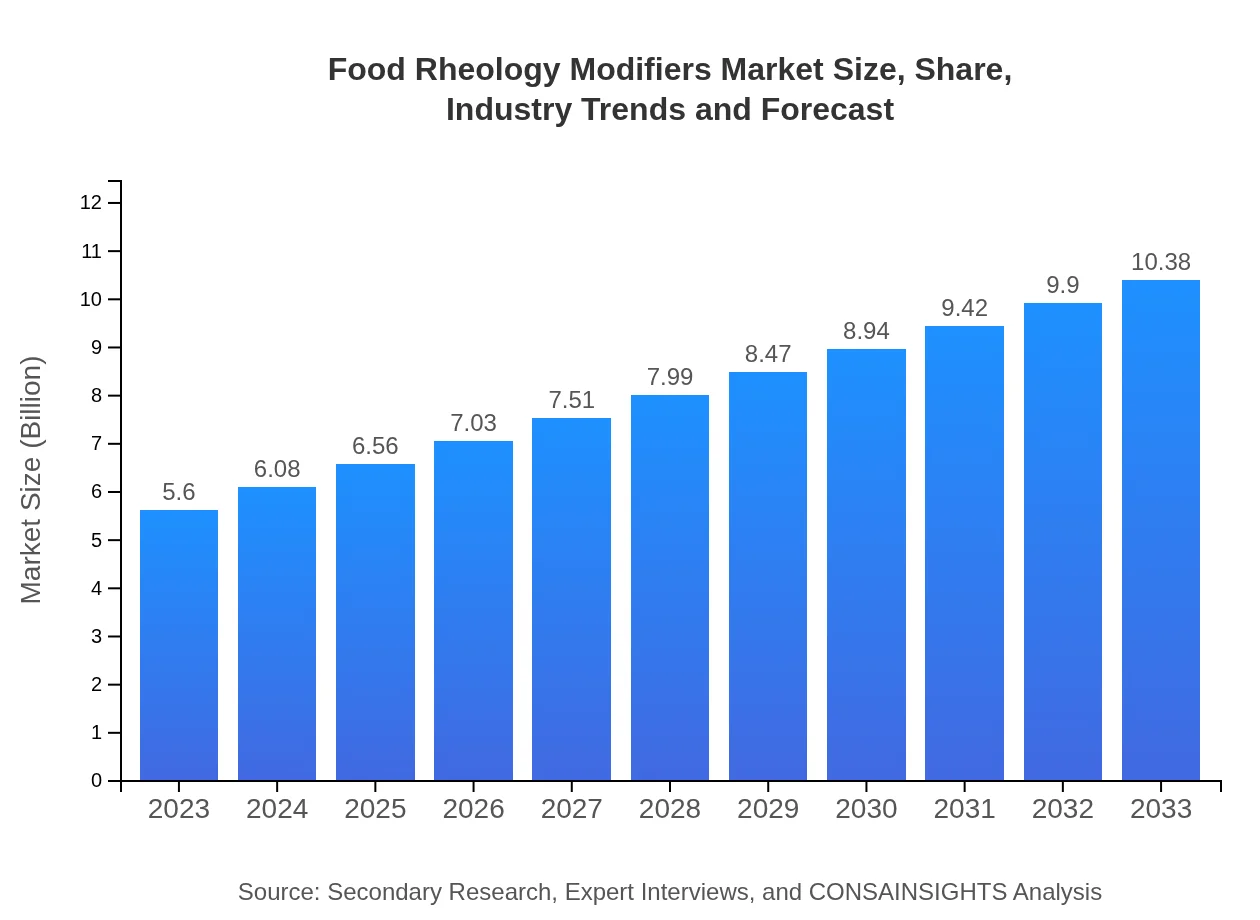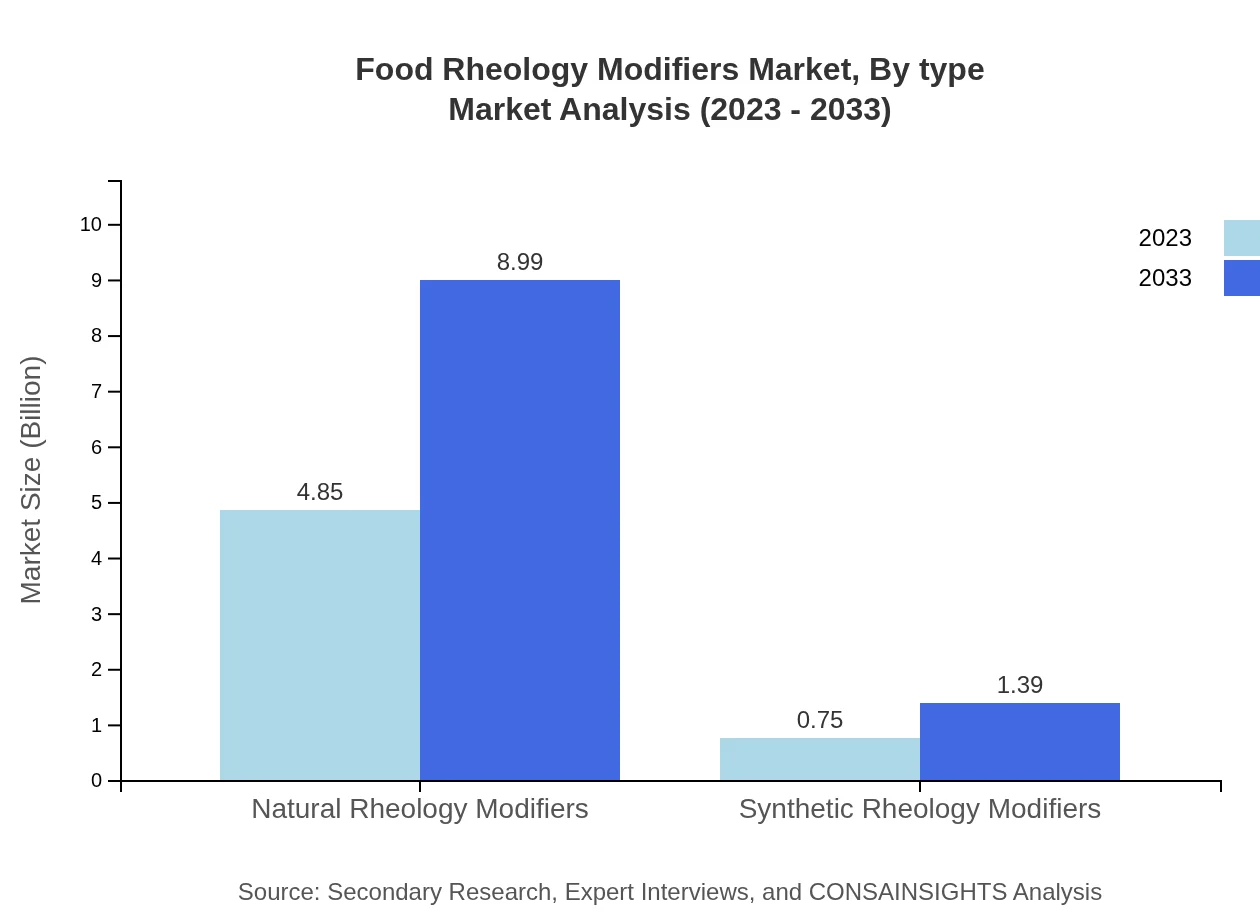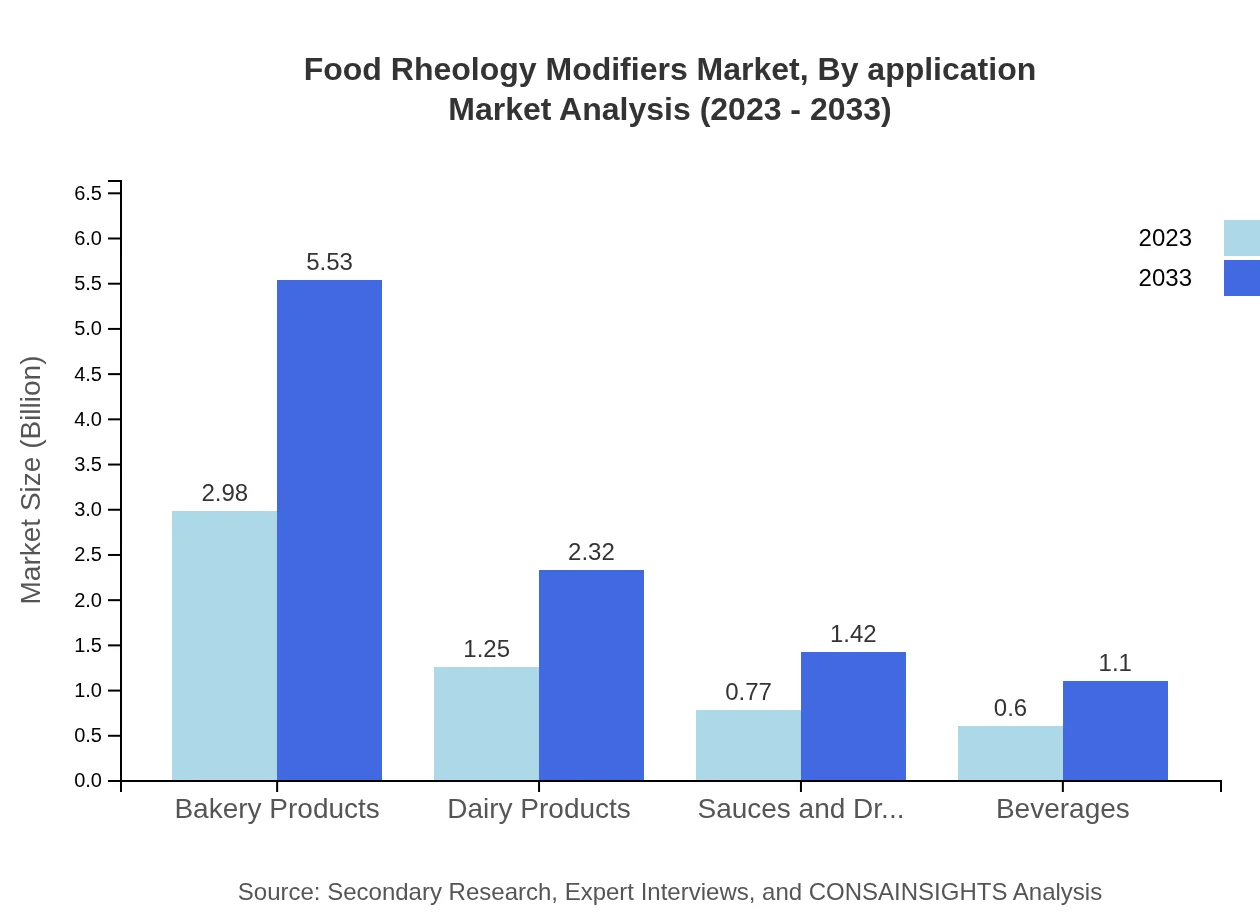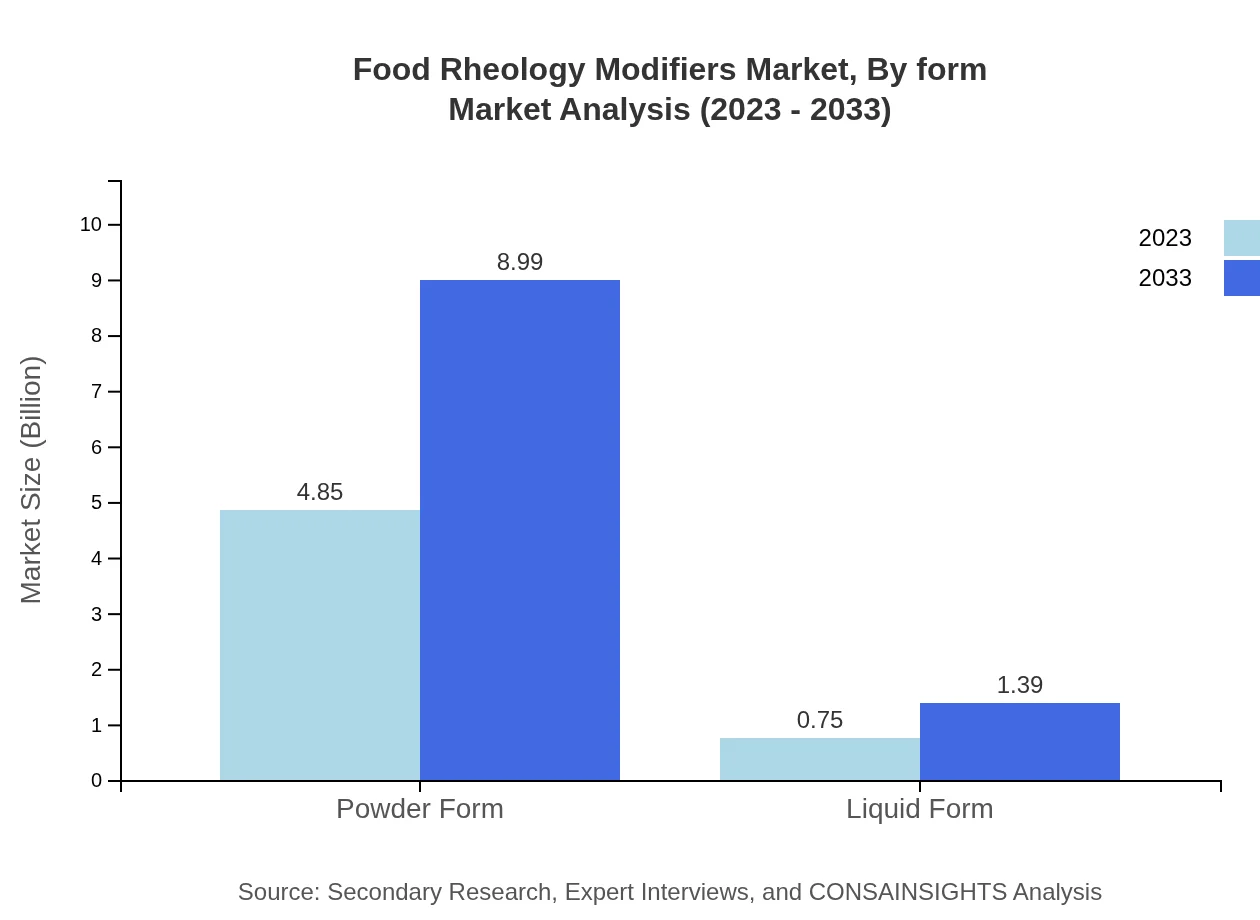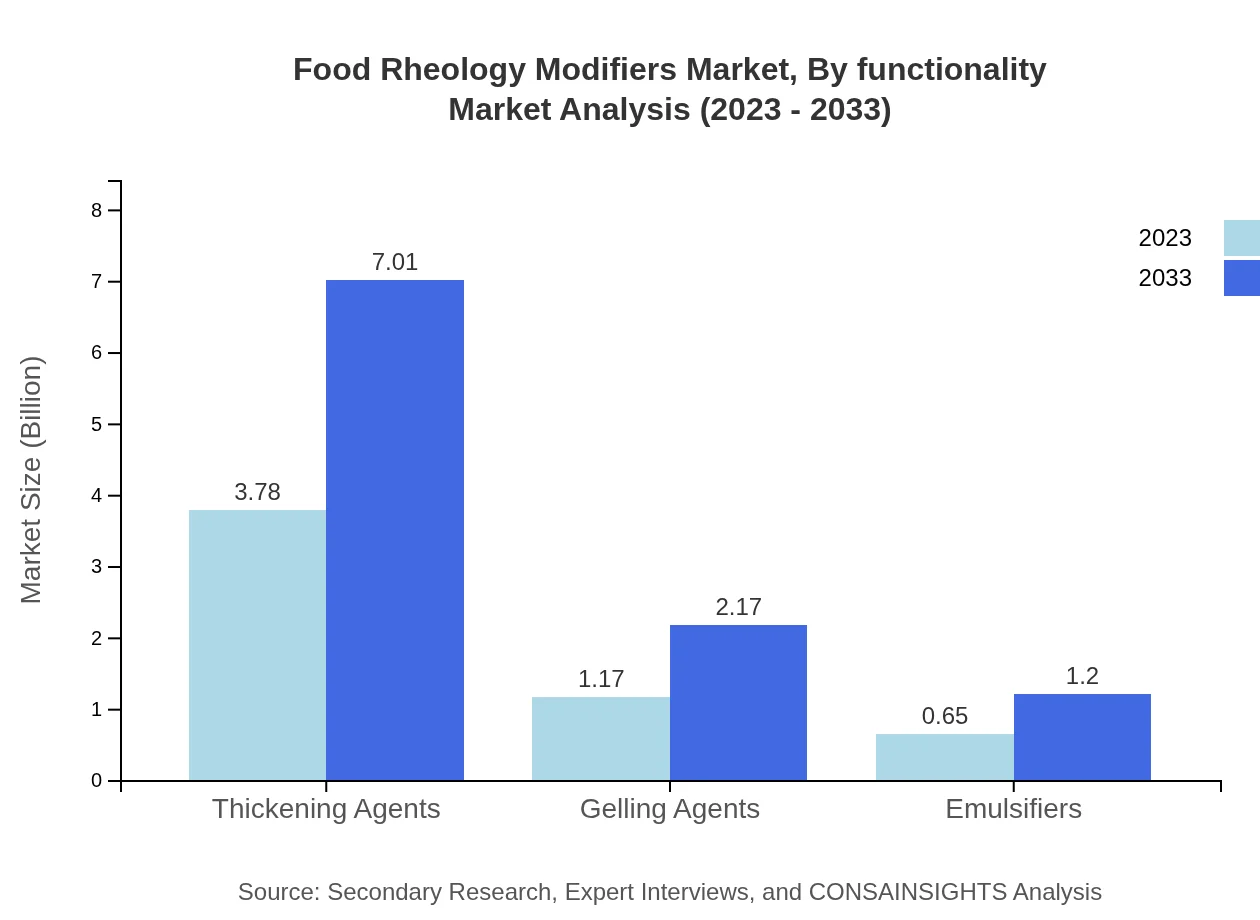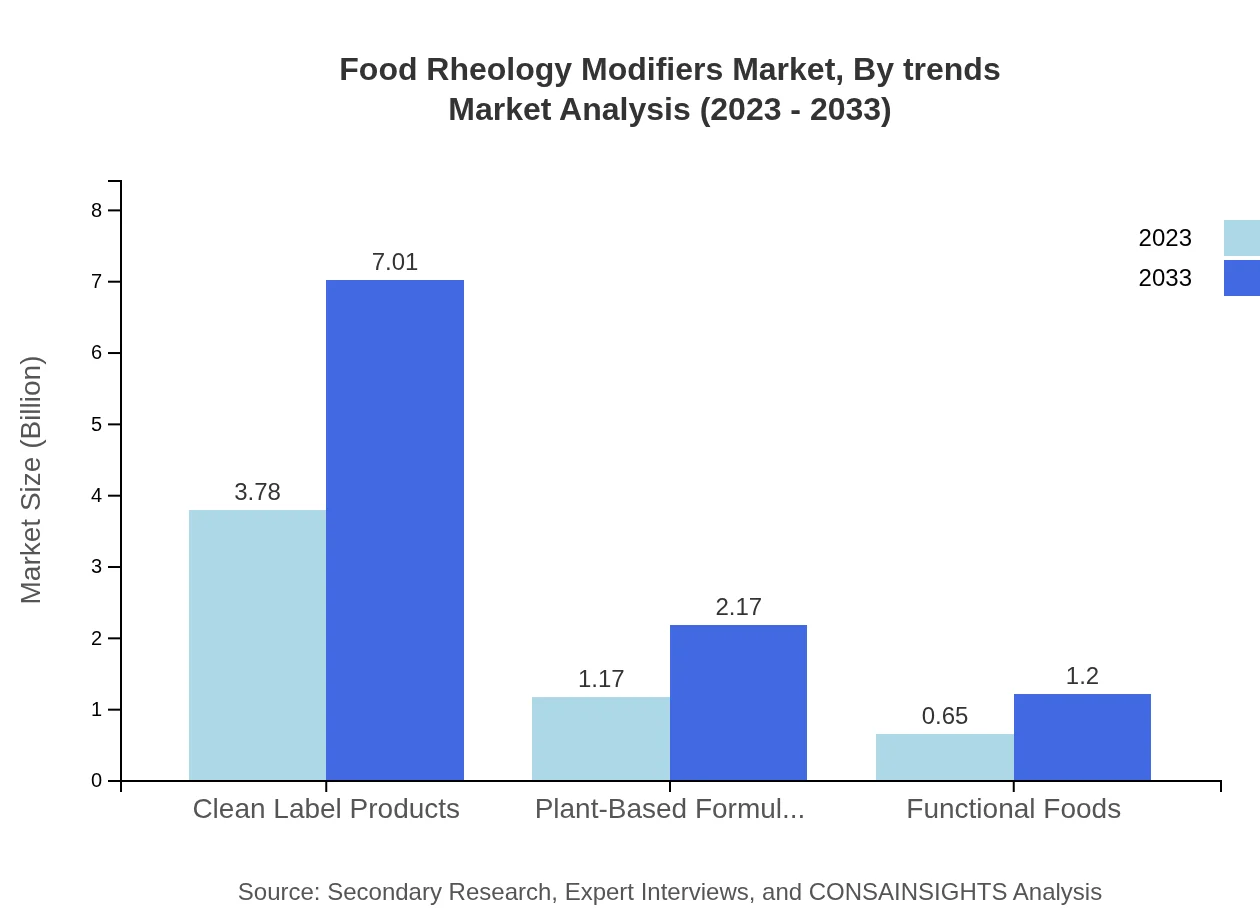Food Rheology Modifiers Market Report
Published Date: 31 January 2026 | Report Code: food-rheology-modifiers
Food Rheology Modifiers Market Size, Share, Industry Trends and Forecast to 2033
This report provides an in-depth analysis of the Food Rheology Modifiers market from 2023 to 2033, covering market dynamics, size, growth projections, regional insights, competitive landscape, and emerging trends. It aims to deliver critical insights for stakeholders in the food industry.
| Metric | Value |
|---|---|
| Study Period | 2023 - 2033 |
| 2023 Market Size | $5.60 Billion |
| CAGR (2023-2033) | 6.2% |
| 2033 Market Size | $10.38 Billion |
| Top Companies | Dupont, Cargill, Inc., Ingredion Incorporated, CP Kelco, Tate & Lyle |
| Last Modified Date | 31 January 2026 |
Food Rheology Modifiers Market Overview
Customize Food Rheology Modifiers Market Report market research report
- ✔ Get in-depth analysis of Food Rheology Modifiers market size, growth, and forecasts.
- ✔ Understand Food Rheology Modifiers's regional dynamics and industry-specific trends.
- ✔ Identify potential applications, end-user demand, and growth segments in Food Rheology Modifiers
What is the Market Size & CAGR of Food Rheology Modifiers market in 2023?
Food Rheology Modifiers Industry Analysis
Food Rheology Modifiers Market Segmentation and Scope
Tell us your focus area and get a customized research report.
Food Rheology Modifiers Market Analysis Report by Region
Europe Food Rheology Modifiers Market Report:
Europe is set to witness substantial growth, with the Food Rheology Modifiers market rising from $1.35 billion in 2023 to $2.50 billion in 2033. There is a growing consumer demand for clean label products, and the regulatory environment is pushing for transparency, compelling manufacturers to innovate.Asia Pacific Food Rheology Modifiers Market Report:
In the Asia Pacific region, the Food Rheology Modifiers market is expected to grow from $1.18 billion in 2023 to $2.18 billion by 2033. The increase in disposable income, urbanization, and a growing population are driving the demand for more diverse and convenient food products, thereby expanding opportunities for rheology modifiers.North America Food Rheology Modifiers Market Report:
North America's Food Rheology Modifiers market is estimated to grow from $1.99 billion in 2023 to $3.69 billion in 2033. Factors such as advanced food processing technology, heightened focus on food safety, and innovative product development are driving this growth.South America Food Rheology Modifiers Market Report:
South America's Food Rheology Modifiers market is projected to increase from $0.34 billion in 2023 to $0.63 billion in 2033. The growth is fueled by rising consumer preference for natural products and organic food ingredients, coupled with increased investment in food manufacturing capabilities.Middle East & Africa Food Rheology Modifiers Market Report:
The Middle East and Africa market is expected to grow from $0.74 billion in 2023 to $1.37 billion by 2033. Rapid urbanization and an increasing adoption of Western dietary habits are contributing to the demand for rheology modifiers in processed food products.Tell us your focus area and get a customized research report.
Food Rheology Modifiers Market Analysis By Type
The Food Rheology Modifiers market can be categorized into natural and synthetic modifiers. Natural modifiers, such as starches and gums, represent a significant majority with a market size of $4.85 billion (86.62% share) in 2023, projected to grow to $8.99 billion (86.62% share) by 2033. In contrast, synthetic modifiers hold a smaller segment size of $0.75 billion (13.38% share) in 2023, expected to reach $1.39 billion (13.38% share) in 2033.
Food Rheology Modifiers Market Analysis By Application
Bakery products are the largest segment, holding a market size of $2.98 billion (53.29% share) in 2023, forecasted to rise to $5.53 billion (53.29% share) by 2033. Dairy products constitute a significant proportion with a market of $1.25 billion (22.39% share) in 2023, increasing to $2.32 billion (22.39% share) by 2033. Other segments include sauces and dressings at $0.77 billion (13.69% share) and beverages at $0.60 billion (10.63% share).
Food Rheology Modifiers Market Analysis By Form
The form of rheology modifiers is crucial for their application, with powder form dominating the market at $4.85 billion (86.62% share) in 2023, and projected to grow to $8.99 billion (86.62% share) by 2033. Liquid form is also significant, starting at $0.75 billion (13.38% share) in 2023 and expected to reach $1.39 billion (13.38% share) in 2033.
Food Rheology Modifiers Market Analysis By Functionality
Rheology modifiers function as thickening agents, gelling agents, and emulsifiers. Thickening agents dominate with a size of $3.78 billion (67.53% share) in 2023, increasing to $7.01 billion (67.53% share) in 2033. Gelling agents and emulsifiers serve important roles too, with sizes of $1.17 billion (20.88% share) and $0.65 billion (11.59% share) respectively in 2023.
Food Rheology Modifiers Market Analysis By Trends
The market is witnessing a shift towards clean label products and natural formulations to cater to the health-conscious consumer. There is also a notable trend towards plant-based and functional foods, propelling the demand for innovatively formulated rheology modifiers. Companies that emphasize sustainability in sourcing and processing are adapting to market demands effectively, showcasing adaptability and consumer-centric innovation.
Food Rheology Modifiers Market Trends and Future Forecast
Tell us your focus area and get a customized research report.
Global Market Leaders and Top Companies in Food Rheology Modifiers Industry
Dupont:
Dupont is a leading chemical and biotechnology company that manufactures a range of food additives, including advanced rheology modifiers with strong functionality, serving various food applications worldwide.Cargill, Inc.:
Cargill offers a comprehensive portfolio of food additives and ingredients, including rheology modifiers focused on innovation and sustainable practices to meet evolving food industry demands.Ingredion Incorporated:
Ingredion provides ingredient solutions for food manufacturers, including rheology modifiers that enhance texture and stability in a variety of food products.CP Kelco:
CP Kelco specializes in producing natural rheology modifiers and gelling agents used to improve viscosity and texture in food applications globally.Tate & Lyle:
Tate & Lyle is known for its advanced ingredient solutions that include a range of rheology modifiers designed to address modern consumer trends and food manufacturing challenges.We're grateful to work with incredible clients.









FAQs
What is the market size of food Rheology Modifiers?
The global food rheology modifiers market is currently valued at approximately $5.6 billion in 2023, with projections indicating a compound annual growth rate (CAGR) of 6.2% over the next decade.
What are the key market players or companies in this food Rheology Modifiers industry?
Key players in the food rheology modifiers industry include major companies such as Ashland Global Holdings Inc., Dow Inc., and BASF SE, which lead in innovation, product offerings, and market reach.
What are the primary factors driving the growth in the food Rheology Modifiers industry?
The growth of the food rheology modifiers market is driven by increasing demand for processed food, advancements in food technology, and consumer preferences for texture enhancements and clean label products.
Which region is the fastest Growing in the food Rheology Modifiers?
The Asia Pacific region is experiencing rapid growth in the food rheology modifiers market, projected to increase from $1.18 billion in 2023 to $2.18 billion by 2033.
Does ConsaInsights provide customized market report data for the food Rheology Modifiers industry?
Yes, ConsaInsights offers customized market report data tailored to specific needs within the food rheology modifiers industry, ensuring relevant insights for strategic decision-making.
What deliverables can I expect from this food Rheology Modifiers market research project?
Deliverables from the food rheology modifiers market research project include comprehensive market analysis reports, segment data, regional insights, and forecasts on market trends.
What are the market trends of food Rheology Modifiers?
Current trends in the food rheology modifiers market include a shift towards clean label products, the rise of plant-based formulations, and increasing utilization of natural rheology modifiers.

